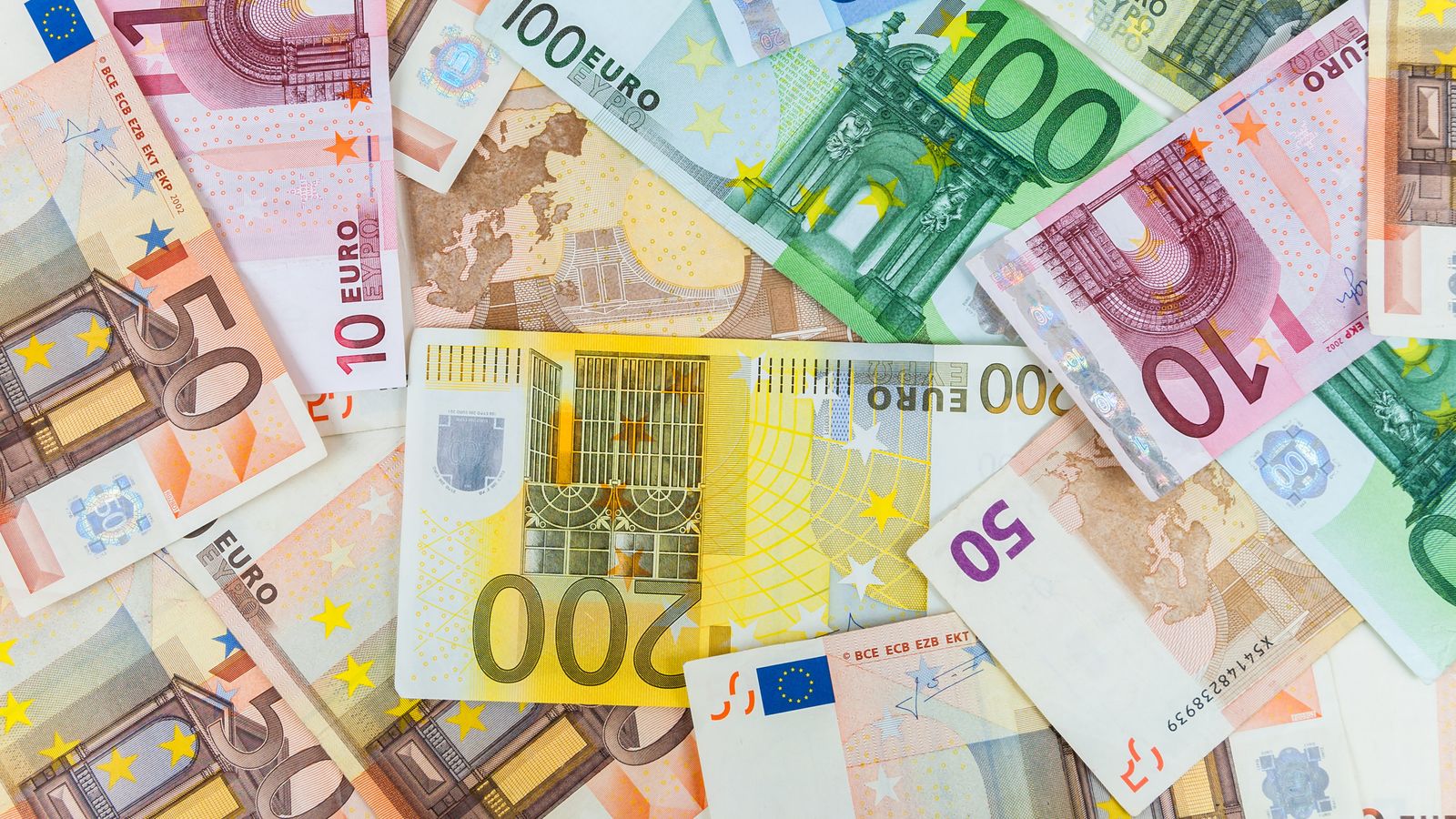European Central Bank increases interest rate for 10th time in a row – hitting a record high

The European Central Bank’s main interest rate has hit its highest level since the creation of the euro in 1999 amid the continuing battle against inflation.
The Bank’s deposit rate was raised by 0.25 percentage points to 4% at the latest meeting of the governing council, which manages monetary policy for the 20 countries that use the European single currency.
Financial markets and economists had predicted the decision would be a close call, given stubborn inflation in many euro-using nations.
The August inflation figure for the euro area as a whole came in at 5.3%, more than twice the central bank’s target rate of 2%.
The “one-size-fits-all approach” in ECB policy is complicated by the varied challenges faced by each member state.
For example, many in the eastern bloc are still suffering from inflation rates running into double digits.
Read more from business:
Arm Holdings valued at £43.6bn ahead of stock market return
John Lewis transformation to take two more years
Deloitte to cut ‘more than 800 jobs in the UK’
At the same time, members such as Belgium and Spain are seeing the pace of price growth running at levels nearer 1%.
Rising interest rates are a particularly troublesome prospect for Germany – Europe’s largest economy – and the Netherlands, which are already in recession, as they are designed to choke demand in the economy.
Advertisement
In a statement, the Bank suggested rate hikes may now have peaked.
“The Governing Council considers that the key ECB interest rates have reached levels that, maintained for a sufficiently long duration, will make a substantial contribution to the timely return of inflation to the target,” it said.
Commentators also said it appeared that no further rises were on the cards.
Andrew Kenningham, from Capital Economics, said the ECB’s announcement “probably brings the current tightening cycle to an end.”
He added: “But given the strength of underlying inflation, we expect rates to remain at this level for at least a year even though the economy seems to be heading for a recession.”
Neil Wilson, chief market analyst at Finalto, also said the indications were “the ECB thinks it is done for now and we have reached the peak in rates.”
But ECB president Christine Lagarde did not rule out further rate rises – as she insisted: “We are not saying that we are now at [the] peak”.
She told a press conference on Thursday: “The fight that we are leading against inflation is making progress – and what we’re doing today is to try and reinforce that progress.
Listen and subscribe to The Ian King Business Podcast here.
“Back in October we were at 10.6% [inflation], we’re down to 5.3% now, so it’s been divided by half.
“Is it satisfactory? No. Because it is expected, by our projection, to still remain too high and for too long. But inflation has declined and we want it to continue to decline and to reinforce that process.”
She added: “We’re doing that not because we want to force a recession, but because we want price stability to be there for people who are taking the brunt of inflation, high prices – predominantly those who are not the most privileged people.”
The rate hike came as the ECB also downgraded its growth forecasts, with euro area growth this year now put at
only 0.7% – down from its previous projection of 0.9%.
But Ms Lagarde batted away questions about a possible looming recession and said the slowdown would be temporary.
“The recovery we had planned for the second half of 2023 has been pushed out over time. We are confident that growth will pick up in 2024,” she added.